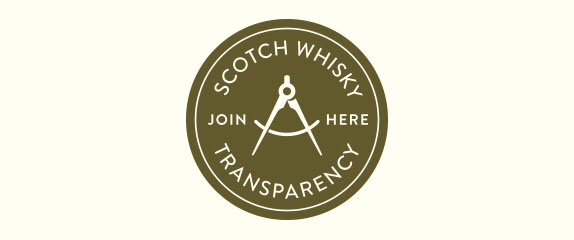
After the debacle with the SWA (Scotch Whisky Association) censuring Compass Box’s recent Flaming Heart (5th Edition) and This is Not a Luxury Whisky releases for, literally, revealing too much information about the recipe used in the bottle, Compass Box has come back fighting with a Campaign for Scotch Whisky Transparency. I witnessed an interesting exchange on a Facebook group where the opinion was raised that this is just a publicity and/or marketing stunt by Compass Box to drum up more controversy and thus more exposure. Let’s break it down.
The issue at hand is the current EU (not just UK) law regarding the labeling and marketing of aged spirits. It states that any mention of age or maturation period (on the bottle label OR in published marketing material, including websites), if any, MUST refer ONLY to the youngest spirit in the bottle. This applies to blends which could have hundreds of components, blended malts which could have anywhere from two to dozens of malts of various ages, and even single malts, which could include multiple ages of whisky from the same distillery. According to the law, in all cases these products can only disclose the age of the youngest component. It should be noted that the SWA’s role in this was simply to inform Compass Box that they were potentially in breach of EU law.
Compass Box proposes this be resolved by changing EU law (which would require ratification by all EU member countries) to “allow producers the freedom but not the obligation to provide complete, unbiased and clear information on every component whisky in their product – with or without a headline age statement outlining the age of the youngest spirit.” In short, they mean the big number on the bottle or in the headline of the marketing material can refer only to the youngest spirit (as today), but the “small print” description on the bottle or marketing text can describe, in full, the composition of the bottle’s contents. Read the campaign’s website for more information.
My opinion? I think that whether this is a marketing stunt or not is irrelevant. No company in the history of capitalism has ever done anything without self-interested motive (even charitable works and donations are meant to improve a company’s image for marketing purposes or goodwill for negotiation/lobbying), so what we need to examine is not the incentive but the intended outcome. In other words: Do Compass Box and the whisky-appreciating public have aligned interests? In this case, I believe we do. I want to know what’s in my whisky, and I want to have a reasonable assurance that the information stated on a bottle or in official marketing materials is factually true. I think this information would go a long way towards improving the education of a whisky-drinker (“So that’s what 10% old peated whisky in a blend tastes like, as opposed to this bottle that has 10% young peated whisky!”) and the experience of drinking an expensive blend (“Ahh, that’s why it tastes so good: There’s some 40 year-old Mortlach in here! This bottle was worth the price after all!”). [Ed.: Hyperbole intentional. Yes, I am my own Editor.] Compass Box, in turn, has realized that when people read today’s marketing and bottle labels on most brands, they feel like they’re being lied to by omission. Try to get any good factual information about the contents of a bottle of single malt or blended scotch from its label and you’ll see what I mean. Think how refreshing it would be to pick up a bottle and read the recipe on the back, complete with ages, percentages, and wood types! Compass Box gets it.
As to the proposed legislation, I think it would be a bit tricky to enforce. When does an “Age Statement Headline” bleed over into marketing text? I can definitely imagine the potential for abuse, such as releasing a NAS (no-age-statement) bottle with a label back and marketing prose that says “Contains 100 year-old Macallan!” when all you did was add a single drop of archival Macallan to each gigantic vat. Similarly, one could describe the minority high-profile malts in a blend while omitting the low-profile malts that make up the vast majority of the blend. Let’s keep in mind that the current EU regulation is intended to protect customers from exactly that kind of deceptive marketing. In the extreme hypothetical case where the EU law doesn’t exist, a producer could take the above blend with 100 year-old Macallan and sell the blend as “Aged 100 Years”! Nobody wants that to be legal.
My solution? One of three possibilities: (Two require the EU to change the law, an apparently arduous and lengthy process. The third doesn’t.)
1. Allow the release of factual component information (age, distillery, wood type(s), etc.) in marketing materials but not on the bottle label. Any information so released must be documented with proof in case of an audit. If the information includes the age of a component that is not the youngest spirit in the blend, that component must also include a percentage by volume.
2. Task a third party such as the SWA or another sanctioned group to maintain a public (online) database of whisky products on the market and the factual information released by the company. This information would be voluntary. It would be fact-checked (or at least backed up with proof as above in case of audit), and it would be in a standard (easily comparable) format. A producer could refer to the existence of this information in marketing materials, and could place a standardized graphic containing the approved information (think USDA Nutrition Label) in the marketing materials or on the bottle label.
3. Skirt the law and release proprietary production details about products to industry insiders (press, bloggers, whatever), who will proceed to publish it (unofficially) with abandon. Give no public comment. People who want to know (like me!) can find the information. The general public is none the wiser (and no more deceived than they are today). Downside: This approach is rife for abuse.
Whether you think Compass Box is out for itself, that the proposed legislation is ineffective, or that the EU will never bother to change the law, I still urge you to consider supporting the campaign if for no other reason than it might spark a dialog that could lead to improved regulations and more information for consumers.
What do you think? Comment away!

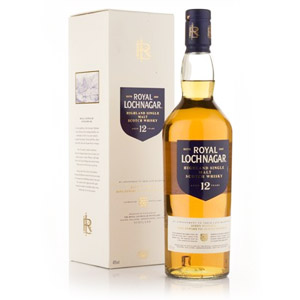
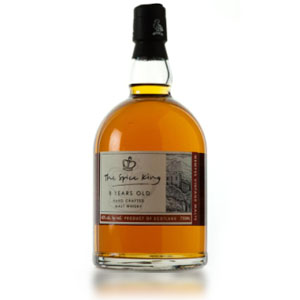
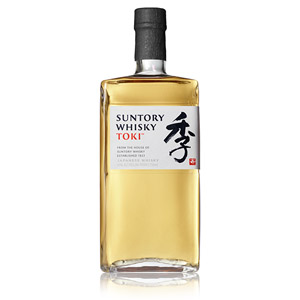
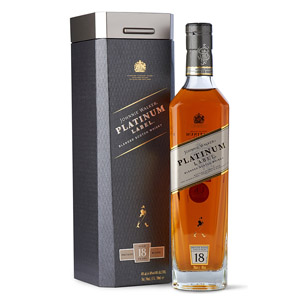
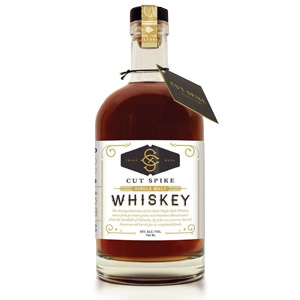
If one looks at CB’s position – no minimum age statements on most current products and talking about consumers’ “right” to more information while being very careful to stipulate that no producer (including CB) should be obligated to actually provide more information than they are now – there can be little doubt that Compass Box is full of shit here. With the disconnection between a consumer’s right to information and the producer’s obligation to provide it, I’m not sure that Compass Box “gets” anything – except what’s good for Compass Box.
That is not to say that CB’s proposal, if successful, might not result in more information for consumers, but that result will be incidental to CB attaining a marketing advantage, win or lose. Whether it matters to anyone that they’re being lied to through an act of commission versus an act of omission in the meantime is up to the individual.
“No company in the history of capitalism has ever done anything without self-interested motive.” – if Compass Box gets a pass on this basis, why not the SWA or every other company that has bent the truth while trying to make money in whisky? If “being in business” justifies all sins, do consumers have a right to complain about anything? The entire “you can’t expect companies to be honest” argument is exactly why consumers currently have the market they do: where ethical standards are allowed to slip, performance is soon to follow. I agree that Compass Box’s motivations here are irrelevant if one is prepared to settle for just whatever information the big players end up deciding to part with and the fact that they’re involved in a capitalist enterprise is seen as a panacea for the rest, but not being surprised at a company’s actions when you don’t really expect anything from them isn’t the same thing as the company being able to defend those actions on logical/ethical grounds, which is the problem we have here. Why consumers can’t have more information about what they’re buying is one conversation that needs to begin, but why someone’s making a buck doesn’t justify lying to consumers to do it is another.
Hi Jeff,
Thanks for your comments!
I’ll just address a few points. First, I don’t think it’s reasonable to expect that producers will ever, through any legal force, be obligated to reveal more information about their products than they do now. This is not a public safety issue (as it is with nutrition and food additives). All CB (and as I’ve called for similar things in the past, me) is asking for is to be *allowed* to put a recipe on the label/marketing. The fact that they’re legally prevented from it now is preposterous, and hurts the consumer just as much as it hurts a producer who wants to market based on that information.
Second, your comment about “what’s good for Compass Box” is why I mentioned capitalism. I don’t think that a profit motive is incompatible with consumer protection/rights/desires WHEN THE BEST INTERESTS OF BOTH PARTIES ARE ALIGNED. In this case, Compass Box wants to reveal more information about its products to hopefully sell more products to people who want more information. Their interests are aligned with consumers, and therefore I don’t think they’re “full of shit”.
I never said that you can’t expect companies to be honest. I said you can’t expect them to act against their own self interest (profit). I don’t think the self-interest of capitalism provides a pass on “bending the truth”. Prevention of corporate deceit is why we (ideally) have laws about things like Truth in Advertising and labeling in the first place. I also don’t think Compass Box is “bending the truth” at all. Nobody should expect a business to do things against its own self-interest, as long as they are within the law. Expecting Compass Box to hurt its profits by campaigning for something without self-interest would not be reasonable. The fact that they’re campaigning for something that aligns with their self interest is reasonable, and should not be a reason to denigrate them or their goal. (If their goal is suspect or hurts the customer, then denigrate away).
Compass Box isn’t bending the truth when Glaser talks about consumers’ rights to more information that no one is obligated to provide? What is the definition of “a right” in that context? I’m not “denigrating” anybody; I’m pointing out a full-fledged contradiction that a lot of people are simply holding their nose and ignoring. It’s true: it’s not a public safety issue… and it’s not really about anyone’s right to information either. Which is why Compass Box is full of shit – and why we don’t have perfectly legal age statements on most CB products to this day.
“Second, your comment about “what’s good for Compass Box” is why I mentioned capitalism. I don’t think that a profit motive is incompatible with consumer protection/rights/desires WHEN THE BEST INTERESTS OF BOTH PARTIES ARE ALIGNED.”- sure, they’re not incompatible, but they’re only coincidental and, even at that, the facts are manipulated to fit the company narrative (see above) . My question is, can consumers afford to be concerned with their rights only to the degree that it suits some company’s definition/agenda, when the benefit to consumers amounts to only what stands to make that company a dollar? There’s no doubt that the law should be reformed, but is even Compass Box committing to full disclosure if it’s successful? I haven’t read/heard anything to that effect, but I ‘m told what a producer isn’t obligated to do at multiple points on CB’s campaign page. My right to know what a producer WANTS to tell me has never been “challenged” by anyone (even Diageo). What about my right to know what I’m buying whether it closes the sale or not, just on the basis that, as Glaser says, I should know?
Jeff, I would say there’s a big difference between choosing enthusiastic wording in marketing materials and outright lying to consumers. Nobody seriously thinks that “hand crafted” (on every whisky advert, ever) means they literally made the whisky with their hands. In the same way, CB is (in my opinion) not doing anything wrong by advocating that consumers have a “right” to knowledge when really what they have is a “right” to not be lied to, and that’s about it, legally speaking. As to your first paragraph, I’m confused – what are you accusing CB of, exactly? Not holding themselves to a higher standard than their competition? If they want to provide more information about some products and not all products, I can hardly say that’s treasonous.
Coincidentally aligned interests are still aligned. If you’re hoping that companies that make a profit will go out on a limb, publicly, for a cause that doesn’t benefit them in some way, you’ll be sadly disappointed. Also, if you’re hoping that someone not in the industry will stand up for consumer’s right, then I am too. As soon as it happens, you’ll see a post on this blog promoting it. Until then, CB’s move is (in my opinion) worthy of support, because at least their have the clout to get something done.
Lastly, your right to know what a producers wants to tell HAS BEEN CHALLENGED and is exactly the point of this campaign. The EU and UK laws PREVENT anyone (Compass Box or any other producer) from telling you exactly what’s in a bottle of whisky, as long as there is more than one age in that information. Period. You are legally prevented from being told that information. If I start “The Noob Whisky Company” and pour a barrel of 12 year Speyside and a barrel of 14 year Highland together in a vat and bottle it, I am legally prevented from informing anyone that there is both 12 and 14 year old whisky in the bottle. That’s the issue at stake.
What I’m saying is that Glaser’s use of the word “right” amounts to utter self-serving nonsense in the context that he uses it (if someone has a right to something, then someone DOES have a obligation to provide it), which is why, when you discuss it, it’s reduced to the euphemism of “enthusiastic wording” so that you can defend it. Clear enough now?
“Lastly, your right to know what a producers wants to tell HAS BEEN CHALLENGED and is exactly the point of this campaign.” – it hasn’t been challenged because “I” have no such right; all that amounts to, apparently, is “enthusiastic wording”. What’s really “at stake” is some enhanced right for Compass Box to reveal or conceal a wider scope of information at its own discretion, all disguised as being about the consumer’s “right to know”. It’s a beautiful job of a company tapping into the zeitgeist of growing consumer dissatisfaction to serve its own marketing ends, but total bullshit in terms of how it’s presented – but that probably doesn’t matter so long as we’re talking about Compass Box, and can agree that this, like whisky being “hand crafted”, is really just about marketing/positioning and not about truth. Again, if you’re in the whisky business, you’re justified in what you do if it serves your ends. Do I really have some right to not be lied to either, or is that just “enthusiastic wording”?
Ok, so if I understand your concern, it’s that if Glaser says he wants EU law to be changed so that customers have a “right” to “know exactly what it is they’re drinking”, then he should also want EU law to be changed to that producers (like himself) have an obligation to fulfill that right by providing whatever information is apropos. Since we both know that’s a pipe dream, I’m comfortable with the language being enthusiastic wording, and you are not comfortable with that. Fair enough.
Your premise thus is based on the feeling that Glaser’s campaign is lying to you. You are, of course, entitled to that. I don’t feel lied to, and I encourage anyone else reading this to determine for themselves whether they feel lied to by Compass Box.
My argumentativeness comes from the feeling that your argument could have been used by pro-Prohibition defendants against overly enthusiastic lobbying by alcohol producers in the 1930s. Yes, the alcohol producers wanted the law changed so they could make a profit selling alcohol, and no doubt their public pronouncements sounded very high-minded and egalitarian while disguising their “real” motives of wanting to make money by practicing their craft. While I know we’re not talking about Prohibition here, it is similar in that it’s a law that prevents both producers and consumers from getting what they mutually want.
If I boil this down to what matters to me as a consumer, it becomes very simple. Compass Box is not obligated to tell me what’s in their whisky, but they want to tell me some of that information so that I will buy more of their products. EU law prevents them (and every other whisky producer) from doing that. Both Compass Box and I want this to change. If I start quibbling with the language of the campaign, I am not furthering that jointly-beneficial goal. If Compass Box had consulted you on their wording prior to launching the campaign, it would have come across as very watered-down and likely had very little impact. “Come help us improve our marketing” doesn’t gather many signatures. Ask any politician, ever. Even the ones with best-interests aligned with their voting public.
If we both know it’s “a pipe dream” then we both know that Glaser is full of shit when he says it, don’t we? The difference is that you cover for him and I don’t. I don’t “feel” that the CB campaign is lying to me over the obvious contradiction regarding consumer rights to information and obligations to provide it to them – it’s a fact, just one that you’re willing to ignore in order to support the campaign and its possible residual benefits. You’re right; “come help us improve our marketing” doesn’t gather many signatures – which is, again, why the ends justify the means and, while you “never said that you can’t expect companies to be honest”, that’s largely still a pipe dream too.
We know the Scotchnood’s connection here in supporting his blog which I appreciate immensely. Me, I’m a retired chemist that is just starting to enjoy whisky. What about you Jeff. What do you do for a living and what is your personal, or is it professional interest in this issue? What are you defending? The right to deceive? What harm are you preventing by keeping information from me?
I have no connection to the industry, but I have nothing to prove to your satisfaction, nor can you prove anything to me by swearing on a stack of internet bibles that you are who you say you are – which is why I tend to concentrate on issues/arguments, not good intentions or who comes from what camp.
As per a clarification from CB’s Head of Marketing (http://www.allthingswhisky.com/?p=2904#comments), I can now support CB’s campaign in that the stated intention/commitment is now to make full disclosure universal with CB products, although I’d still like to see age statements in the interim – which would only be consistent from a producer who wants to tell you “all he can”.
Touching on that last point, how am I “keeping information from you” compared to Glaser, who could tell you minimum age on all Compass Box products tomorrow – but won’t?
I think a key point to this discussion is that we all want some kind of correlation between marketing and quality. I don’t think that the manufacturers giving us truthful information (even if it is cherry picked information) would be bad.
A possible example is the way whiskey marketing is regulated today is the current age statement law. If we buy a 40 year old bottle we expect it to be good. However there is not regulation to prevent a manufacturer to use a cask that has had 10+ fills or just 1?
I would not say that more information is bad, even if it is selected by manufacturers. We tend to assume the worst, when we don’t have any information. I mean when I buy a blend with NAS I assume it to contain the legal minimum. (or at least a large % of the bottle to have the minimum) At least with more information I can narrow down what I am looking for in a blend.
I think I fall on ScotchNoob’s side. Also I would agree that a key point is that if a manufacturer does choose to disclose what is in the bottle it should also contain a percentage.
Brexit baby!